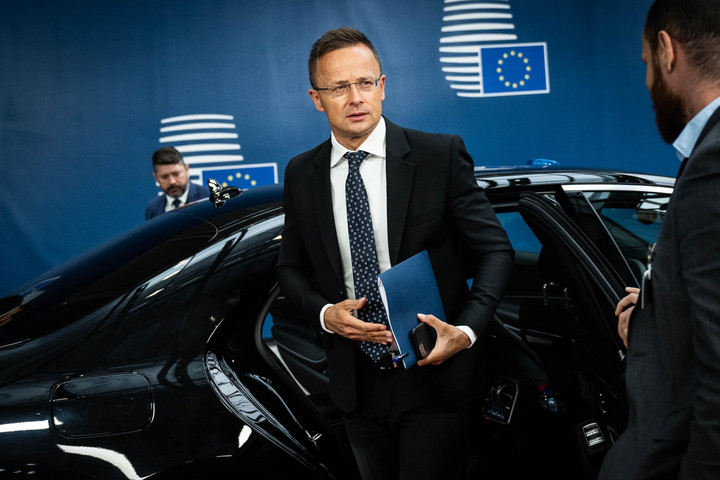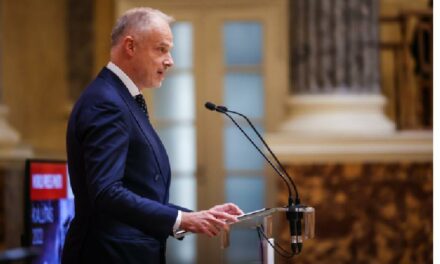Hungary does not participate in the transport of ammunition to Ukraine, and at the same time it does not prevent the other countries of the European Union from doing so, therefore the government applies the institution of constructive abstention in the matter, Minister of Foreign Affairs and Trade Péter Szijjártó announced on Monday in Brussels.
At the press conference held during the break of the meeting of the European Union Foreign Affairs Council, the head of the ministry announced that two proposals were on the agenda in order to increase arms shipments.
According to the first, one billion euros would be financed from the European Peace Framework so that the member states would supply Ukraine with artillery ammunition from their own stocks.
"Hungary does not supply weapons to this war, and we will not supply weapons, we want peace. Therefore, we do not participate in this promotion. We do not ship ammunition to Ukraine. At the same time, we will not prevent others from doing what they want in this regard," he said. He then added that our country's contribution to the European Peace Framework is one percent - roughly ten million euros - which will be used for other purposes at Hungary's request: strengthening the stability of the Western Balkans and mitigating migration pressure.
The second proposal refers to the fact that the EU should hand over to Kyiv as much of the jointly procured ammunition as possible, also worth one billion euros.
"Hungary does not participate in this either, we do not buy ammunition to send it to Ukraine. Here, too, we will resort to the tool of constructive stay, and here too we will ask for a contribution of about ten million euros to support the stability of the Western Balkans and to reduce migration pressure," he said .
"We still believe that what is needed is not arms shipments, but peace as soon as possible, and peace as soon as possible requires a cease-fire and peace negotiations," he concluded. Péter Szijjártó believed that there is still an atmosphere of war in Brussels and that the pressure is increasing on the countries that speak the voice of peace, but the government knows that a diplomatic settlement is the only way to save human lives, so it is persevering with national interests and the cause of peace in addition to his representation.
"It doesn't matter what pressure they put on us in the coming period, we will still represent the cause of peace. As part of the global majority, we will argue for peace," he underlined. As an example of the increasing pressure, he mentioned that today he also received criticism for his position in the UN Security Council. "It was said that it is not right for someone from the European choir to sing in international organizations, which is quite amazing, since the European Union is made up of sovereign countries. These sovereign countries pursue a sovereign foreign policy, and therefore we reject any pressure that seeks to question, limit, or take away the sovereignty of Hungarian foreign policy," he explained.
After that, the minister also touched on the issue of the deprivation of rights of the Hungarian minority in Ukraine, which, as he stated, he had already brought to the attention of his colleagues many times, largely in vain. He emphasized: he asked the European Union High Representative for Foreign Affairs and Security Policy Josep Borrell that when the community officially communicates with Ukrainian partners about integration, they should make it clear that respect for national rights is one of the most fundamental European values.
"I asked the High Representative to act so that Ukraine respects the rights of the Hungarian national community. "It is still unacceptable that while more than 1,300 schools and kindergartens in Hungary have accepted Ukrainian refugee children and students, according to the current Ukrainian regulations, 99 Hungarian primary and secondary schools in Transcarpathia are threatened with closure from September 1," he pointed out. Finally, he emphasized: "I also made it clear that the Hungarian position regarding the Ukrainian integration process will be determined mostly by whether Ukraine respects the rights of the Hungarian national community and whether it returns to the Hungarian national community the rights it had before 2015 already a right".
Source: MTI













